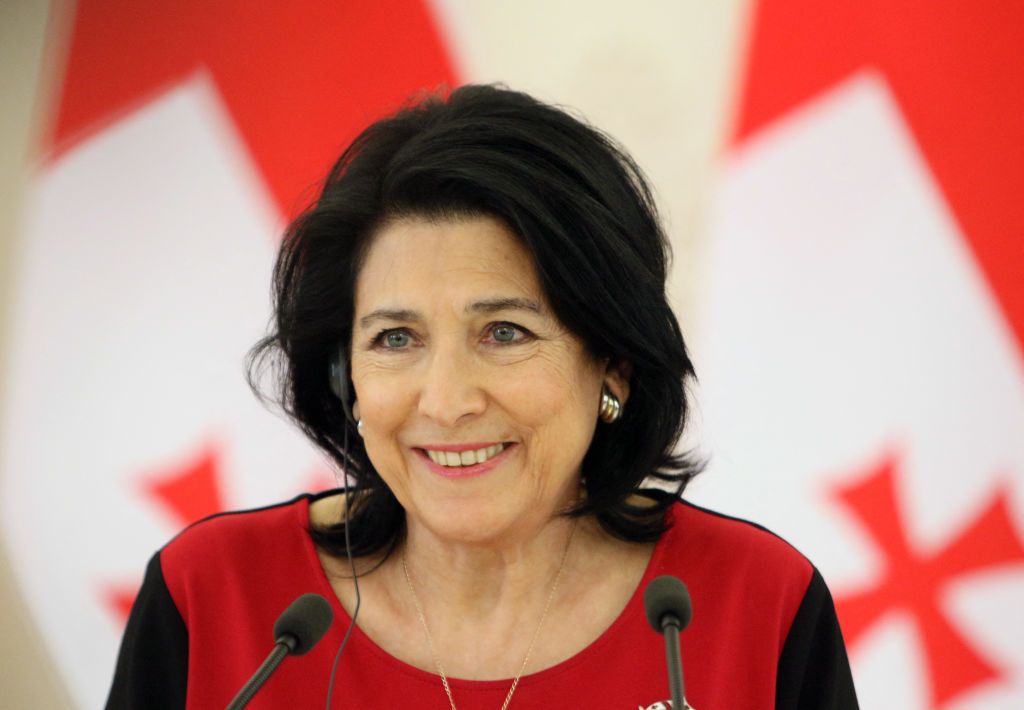Protests continue overnight in Tbilisi ahead of final vote on foreign agents bill

Editor's note: The final vote on the law will take place on May 14, not May 13.
Thousands of protesters remained on the streets of Tbilisi overnight on May 12 ahead of the final reading of the controversial "foreign agents law" in Georgia's parliament on May 14.
The law would require organizations that receive foreign funding to be labeled as "foreign agents." The law mirrors repressive Russian laws used to crack down on Kremlin regime critics and has become popularly known in Georgia as the "Russian law."
The weekend saw tens of thousands of people gather in Georgia's capital, with around 50,000 protesters marching through Tbilisi on May 11 to voice their opposition to the bill.
Georgia's Internal Affairs Ministry warned early on May 13 that protesters should leave the entrance of parliament to allow lawmakers to enter the building.
"Otherwise the police will act within frames of powers stipulated by law and ensure that entry ways to parliament are cleared by police forces," the ministry said.
The protests have been marred by police violence, with police using tear gas, water cannons, other chemical substances, rubber bullets, and extreme physical force to attempt to clear the demonstrations.
Prime Minister Irakli Kobakhidze defended the use of force and placed the blame on the protesters, saying in a speech that "violence begets violence."
The foreign agents bill was first introduced in 2023 by Kobakhidze's Georgian Dream party, but was abandoned after it sparked mass demonstrations.
The Georgian Dream party reintroduced the legislation in parliament in April, renaming it a bill on the "transparency of foreign influence" but keeping the intent of the previous law essentially identical.
Pawel Herczynski, the EU's ambassador to Georgia, told the press on April 11 that the law was "incompatible" with European values.














